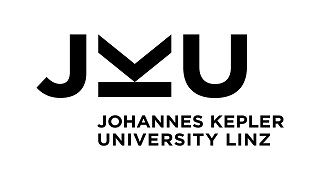Many people form an intention to start their own business but do little to translate these intentions into actions. This is especially true for migrant entrepreneurship, i.e. intenders who are forced to relocate to another country (refugees). Although, we know that only about one third of aspiring entrepreneurs actually engage in entrepreneurial activity in the following years, previous entrepreneurship research could not explain this so called intention-action gap. For Austria and Finland, Marco van Gelderen, Teemu Kautonen and Matthias Fink have closed this gap.
We applied the theory of planned behavior and the Rubicon model of action to examine the roles of self-control and action-related emotions in explaining the intention–action gap. Our analysis was based in a longitudinal dataset collected from a random sample of the Finnish population. Entrepreneurial intentions and, one year later, entrepreneurial action were measured using a postal questionnaire. The results showed that self-control positively moderates the relationship between intention and action, and that it counters the rise of action-related fear, doubt, and aversion. We also found that action doubt negatively interacts with intention strength in predicting action. With these findings, we offered an insight into when and why entrepreneurial intentions are followed by actions. Our findings not only extended intention research in the entrepreneurial context by providing new insights into the behavioral processes that follow the formation of intention. In practical terms our research highlighted that entrepreneurs may have formulated goals or intentions based on partial, incomplete, and inaccurate information, and the implementation phase serves to align those original ideas with reality. This reality check prevents many intenders from taking action, unless they have the self-discipline to overcome difficulties.
As for refugees the circumstances in the target country does not meet their original expectation, the question of how refugees who intend to set up a venture there, actually turn their intention into startup behavior is an exciting one. Your master thesis will in sum aim at answering this question. You will be equipped with a validated questionnaire in English language. With this questionnaire you will approach refugees that have come to Austria during the second half of 2015. You will identify at least 80 individuals who indicate to have intentions to start up a new venture within the next three years and walk them through the short questionnaire. This data collection will be done by 5-10 master students in parallel. For your thesis you will focus on a specific aspect of the total project. This way you will be able to base you analysis on the total sample to which each of you will contribute 80+ observations. That way a series of individual theses will emerge that each are based on a rich empirical bases.
To apply for this research initiative, please send your CV with the reference “MA Migrant Entrepreneurship” to matthias.fink@jku.at until 13th November 6pm.
Key contributions that we have published on similar topics:
van Gelderen, M., Kautonen, T. and Fink, M. (2015): From entrepreneurial intentions to actions: self-control and action-related doubt, fear, and aversion. Journal of Business Venturing (accepted for publication)
Kautonen, T., M. van Gelderen & M. Fink (2014): Robustness of the theory of planned behaviour in predicting entrepreneurial intentions and actions. Entrepreneurship Theory and Practice, DOI: 10.1111/etap.12056.

